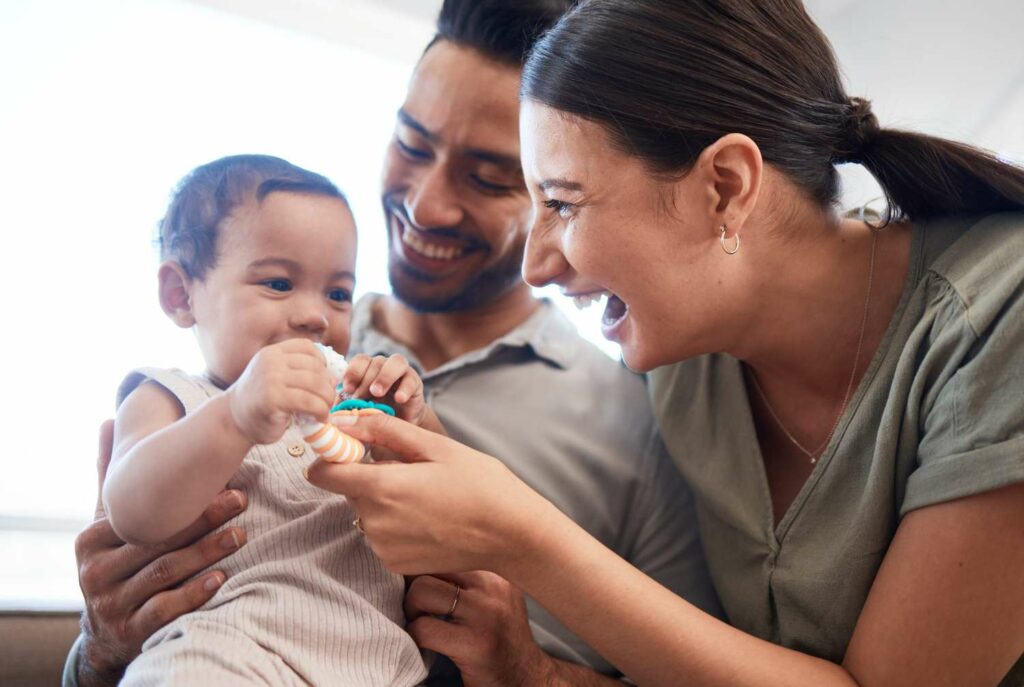Parenting is a journey like no other, marked by its challenges and joys. In a rapidly changing world, where technology and societal pressures shape the landscape, the concept of a “heart-centered parent” gains significance. This approach involves nurturing a child with love, empathy, and guidance, fostering emotional intelligence and resilience. In this article, we delve into the essence of heart-centered parenting, exploring its core principles, benefits, and practical applications.
Introduction
Parenting is a journey filled with moments of profound connection, and heart-centered parenting elevates these moments by focusing on the emotional well-being of both the parent and child. This approach revolves around understanding the child’s emotions, needs, and dreams while embracing their uniqueness.
Understanding Heart-Centered Parenting
At its core, heart-centered parenting emphasizes nurturing a child’s emotional intelligence and fostering a secure attachment. This approach acknowledges that a child’s emotional development significantly impacts their overall growth. The parent becomes a guiding light, leading with empathy and love.
Defining Heart-Centered Parenting
Heart-centered parenting is an approach that prioritizes emotional connection and empathy. It involves recognizing that every child is an individual with their own set of feelings, thoughts, and perspectives. Instead of imposing rigid expectations, heart-centered parents aim to understand and validate their child’s emotions.
The Role of Love and Empathy
Love forms the foundation of heart-centered parenting. It’s not just about saying “I love you,” but also about showing it through actions and behaviors. Empathy complements love by allowing parents to step into their child’s shoes, fostering an environment of mutual understanding.
Benefits of Heart-Centered Parenting
The benefits of heart-centered parenting are far-reaching and profound. By focusing on emotional intelligence and a strong parent-child bond, this approach sets the stage for a child’s healthy development.
Emotional Resilience
Heart-centered parenting equips children with emotional resilience, enabling them to cope with life’s challenges. When parents acknowledge and validate their feelings, children learn to process emotions and develop effective coping mechanisms.
Strong Parent-Child Bond
A heart-centered approach nurtures a deep and secure bond between parent and child. This bond serves as a safe haven, where the child feels accepted and loved unconditionally, fostering a sense of belonging.
Developing Empathy in Children
Empathy is a crucial life skill, and heart-centered parenting actively promotes its development. When parents model empathy in their interactions, children learn to understand and care for others, contributing to a compassionate society.
Practical Strategies for Heart-Centered Parenting
Putting heart-centered parenting into practice requires intentional strategies that promote emotional growth and well-being.
Active Listening and Open Communication
Effective communication begins with active listening. Heart-centered parents give their full attention, validate their child’s feelings, and encourage open dialogue. This practice creates an environment where children feel valued and understood.
Setting Healthy Boundaries
Boundaries provide children with a sense of security and structure. Heart-centered parents set clear and respectful boundaries, helping children understand their limits while nurturing their autonomy.
Teaching Problem-Solving Skills
Heart-centered parenting involves guiding children to solve problems independently. Instead of offering immediate solutions, parents ask guiding questions that empower children to think critically and make decisions.
Embracing Challenges and Growth
Heart-centered parenting acknowledges that challenges are opportunities for growth and learning.
Dealing with Negative Emotions
Negative emotions are a natural part of life. Heart-centered parents teach children that it’s okay to feel sad, angry, or frustrated. They provide tools for managing these emotions constructively.
Encouraging Independence
Fostering independence is a key aspect of heart-centered parenting. As children grow, parents encourage them to make age-appropriate decisions, fostering a sense of responsibility and self-reliance.
The Heart-Centered Parent’s Role in a Digital Age
In the digital age, heart-centered parenting takes on new dimensions as technology influences family dynamics.
Navigating Technology Mindfully
Heart-centered parents approach technology with mindfulness. They educate their children about healthy online habits, ensuring a balanced digital diet and fostering critical thinking about media consumption.
Balancing Screen Time
Maintaining a healthy balance between screen time and other activities is essential. Heart-centered parents encourage a range of interests, ensuring that technology doesn’t overshadow real-world experiences.
Cultivating Self-Care as a Parent
A heart-centered parent understands the importance of self-care, recognizing that their well-being directly impacts their parenting.
Prioritizing Mental and Physical Well-being
Parents prioritize self-care by engaging in activities that recharge their mental and physical health. This practice sets a positive example for children and reinforces the importance of holistic well-being.
Fostering a Heart-Centered Family Environment
Heart-centered parenting extends beyond parent-child interactions and shapes the entire family environment.
Creating Family Rituals
Family rituals strengthen connections. Heart-centered families create traditions that foster togetherness, such as weekly game nights, cooking together, or outdoor adventures.
Practicing Gratitude Together
Gratitude cultivates a positive mindset. Heart-centered families practice gratitude by sharing what they’re thankful for, fostering an environment of appreciation and joy.
Conclusion
In a world of constant change, heart-centered parenting stands as a timeless approach that nurtures emotional intelligence, resilience, and empathy in both parent and child. By embracing love, empathy, and guidance, parents lay the foundation for a harmonious and emotionally rich family life.
FAQs
- What is heart-centered parenting? Heart-centered parenting focuses on nurturing emotional intelligence and empathy in children through love and guidance.
- How does heart-centered parenting benefit children? It equips children with emotional resilience, a strong parent-child bond, and the ability to develop empathy and compassion.
- Can heart-centered parenting adapt to the digital age? Yes, heart-centered parenting incorporates mindful technology use and balances screen time with real-world experiences.
- What role does self-care play in heart-centered parenting? Self-care is essential for parents to model holistic well-being and teach children the importance of taking care of themselves.
- How does heart-centered parenting impact family dynamics? Heart-centered parenting fosters a nurturing family environment through open communication, rituals, and gratitude practices.




